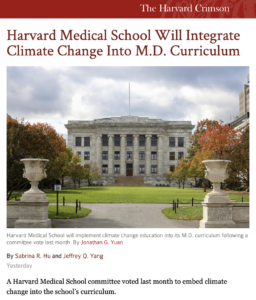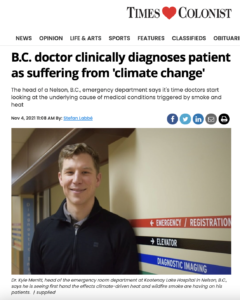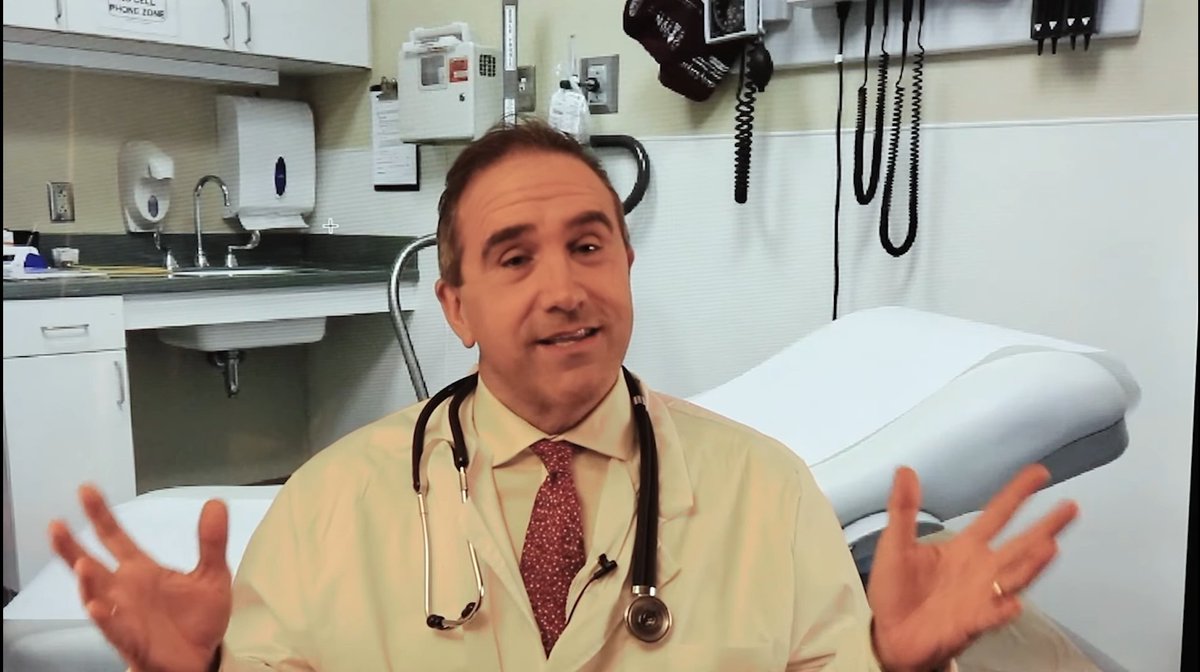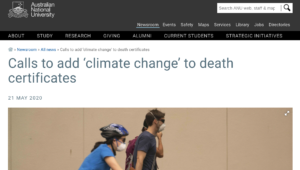In a meeting early last month, the HMS Educational Policy and Curriculum Committee voted unanimously to officially add climate change and health as a theme in the HMS M.D. curriculum. The effort was led by Gaurab Basu, the new climate and health curriculum theme director at HMS, and a group of students from the HMS organization Students for Environmental Awareness in Medicine.
The new climate change curriculum will examine the impact of climate change on health and health inequality, applications of these impacts to clinical care, and the role of physicians and health institutions in arriving at climate solutions.
Climate change’s negative health effects include the increased spread of infectious diseases, “heat-related harm” during extreme weather events, and lung disease due to pollution, according to HMS student Julia R. Malits.
The curriculum change aims to integrate climate change themes throughout students’ medical school education rather than creating new courses specifically around climate change.
“We framed it not as just adding a ton more, but rather enriching the content that’s already there,” said HMS student Natalie M. Baker. “Just adding small points here and there, an extra sentence here to make the connection for people.”
Caleb J. Dresser, a Climate and Human Health fellow at the Harvard School of Public Health, said students and faculty have been pushing to incorporate climate change into the HMS curriculum for years.
“This is an ongoing process,” he said. “It’s been developing for years, as more and more medical students and faculty members have started to engage with this issue and to see it as a really important context in which we are all practicing medicine.”
HMS student Benjamin Grobman said despite the logistical and coordination challenges of adding new curriculum elements, the initiative has been met with a positive response.
“Every course director we’ve met with has been really supportive, enthusiastic, and we’ve been able to embed it into every course that we’ve attempted to in the first year of medical school,” said Basu.
Dresser said he believes the new curriculum prepares students to shape the future landscape of health care upon graduation.
“Many graduates of Harvard Medical School go on to leadership positions in medicine and beyond,” Dresser said. “It’s going to be increasingly important for people in leadership roles in healthcare and other industries to integrate climate change and climate-related hazards into their strategic decision making as they lead organizations.”
Basu said the current changes are in development and will become a “fully curricular theme” on July 1, 2023, when the new academic year begins.
…
HMS student Madeleine C. Kline said though medical education remains outside of her core passions, the potential for enhanced patient care has motivated her to push to modify the curriculum.
“Every student who comes through the Medical School will leave with an understanding of what climate change is and what it means for their patients,” she said. “I think it is going to mean a lot for their patients.”
Malits said she hopes the successful push to include climate change in the curriculum inspires other students to pursue advocacy.
“For those interested in medicine, or human health, you don’t have to wait until you come to medical school to advocate for curriculum development that focuses on the health impacts of climate change,” she said.
#
Related:
You were WARNEDCalls to add ‘climate change’ to death certificates – New study demands ‘climate change’ be added as ‘pre-existing condition’
Cause of Death? Climate Change. “Climate change is a killer, but we don’t acknowledge it on death certificates,” co-author Dr Arnagretta Hunter, from The Australian National University (ANU) Medical School, said. “There is second component on a death certificate which allows for pre-existing conditions and other factors.






